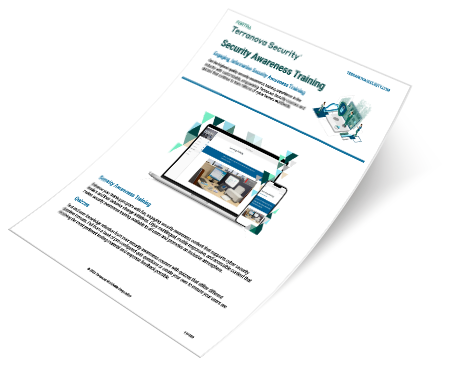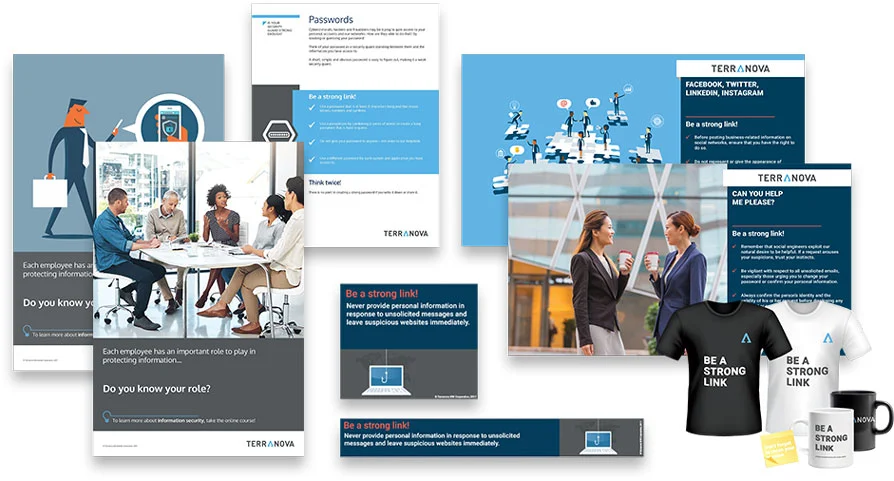The mitigation of reputational risk
Make sure your organization complies with the laws and regulations that impact your industry sector. Rely on our Compliance and Governance training library to get in-depth training on how to protect the corporate data and respect corporate values & procedures.
We help you select the right courses and customize learning content for your line of business.
Compliance Training Courses such as:
Payment Card Industry Data Security Standard (PCI-DSS)
Payment Card Industry Data Security Standard (PCI-DSS)
This training module explains the PCI DSS and the importance of protecting customer information. Whether your employees work in a call center or in retail, this course will show them how to handle payment card data securely and how to recognize and respond to data breaches.
GDPR Essentials
GDPR Essentials
Learn GDPR essentials and how organizations can ensure compliance.
CCPA Essentials
CCPA Essentials
Learn CCPA essentials and steps organizations must take to ensure compliance.
 Security Awareness Training Bundles
Security Awareness Training Bundles
Get the highest-quality security awareness training experience in the industry with customizable, empowering courses and quizzes that continue to train millions of cyber heroes worldwide.
Communication Tools
Adaptive. Engaging. Sharp.
Imagine the right communication strategy for your compliance and governance campaigns. Imagine the right tools that effectively engage audiences while adapting to your organization and facilitating successful collaborations among employees.
Now imagine all this, just in time.
Your Communication Toolbox
 A complete suite of communication tools that features relevant topics. Content and visual designs are updated regularly as to reflect ongoing trends in your industry sector.
A complete suite of communication tools that features relevant topics. Content and visual designs are updated regularly as to reflect ongoing trends in your industry sector.
Objectives
- Raise awareness for compliance
- Mobilize your workforce
- Promote new and existing campaigns
- Reinforce learned concepts and skills
Captivate audience attention and increase participation with:
POSTERS
Artwork includes: classic, realistic imagery or comic book narratives. Both styles can be tailored to your training context.
BEST PRACTICE NEWSLETTERS
Provide an overview of key topics for compliance and governance and enable users to focus on best practices.
WALLPAPERS
Artwork includes: classic, realistic imagery or comic book narratives. Boosting campaign visibility through thought-provoking messages on computer desktops.
WEB BANNERS
Streaming headlines for best practices. Media is available in two standard sizes or can be customized to suit your format: 300 x 250 and 728 x 90.
VIDEOS
Running 4 minutes in length, each video emphasizes learned concepts and skills through storytelling. Shed light on core learning content with Hollywood-style narratives and characters.

